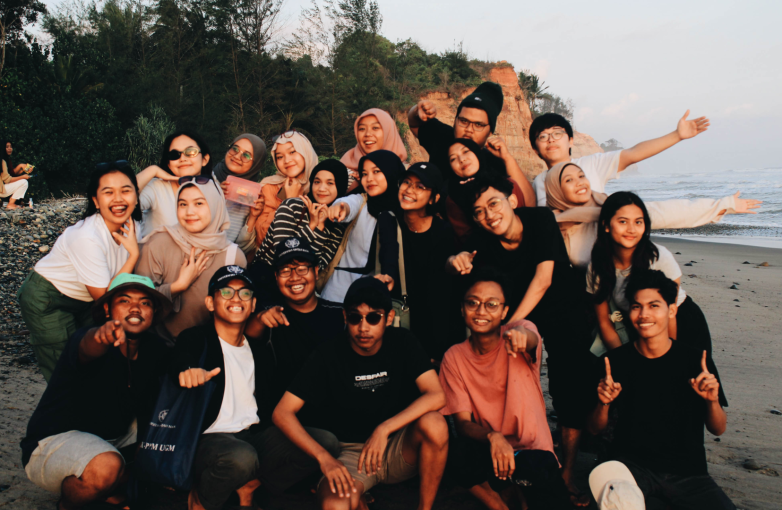
Khosyi Adam Surya Atmaja and Muhammad Harya Kurniawan, students from the Department of Agricultural Socio-Economics, Faculty of Agriculture, UGM, carried out a Community Service Program (KKN) in Fajar Baru Village, Ketahun District, North Bengkulu Regency, Bengkulu Province. For 50 days, from July 1 to August 19, 2024, they conducted various community empowerment programs focusing on strengthening MSMEs and institutional capacities.
The primary focus of this KKN was to assist the people of Fajar Baru Village in maximizing agricultural potential and addressing various socio-economic challenges. One of the main initiatives implemented was the dissemination of information on the use of organic fertilizers derived from oil palm waste and the digitalization of farm record-keeping through the “PATRIOT GAMA” program. Additionally, they introduced the latest agricultural technology by organizing a workshop on solar-powered pest traps in the intercropping of horticulture and oil palm, as well as training on making eco-enzyme from household organic waste.
One of the most memorable moments for Khosyi and Harya was a discussion with the oil palm replanting farmer group “Tunas Harapan,” which has 191 members. This discussion opened their eyes to the various challenges faced by farmers, including marketing, price stability, and farmers’ welfare. The outcome of this discussion motivated them to compile a study on the socio-economic issues of oil palm agriculture, which is expected to help farmers when presenting their concerns to the authorities.
Of course, this KKN was not without its challenges. The scorching weather in Bengkulu, limited access to markets, and the unreliable electricity supply were some of the obstacles they had to overcome. However, adapting to the local community was relatively smooth, particularly due to the large number of transmigrants from Central Java, making Javanese the everyday language in the village.
The work programs carried out by Khosyi and Harya had a significant impact on the community. The villagers were increasingly motivated to explore the region’s potential and create new innovations. The active participation of the community in every KKN activity reflected their high enthusiasm for the programs implemented. The community even frequently invited the students to various social events, showing how welcoming they were to the students’ presence in the village.
During the KKN, Khosyi and Harya collaborated with various parties, including the village government and community organizations, to deliver a lasting positive impact. They hope that the programs they have implemented can help the community solve the various problems they face, as well as inspire other students who will undertake KKN in the future.
This KKN activity is closely related to several Sustainable Development Goals (SDGs), particularly in efforts to eradicate poverty (SDG 1), strengthen cooperation in agricultural communities (SDG 8), and utilize innovation and technology for sustainability (SDG 9). By leveraging local resources and technology, it is hoped that sustainable development in Fajar Baru Village and its surroundings can continue to be promoted and strengthened.
Author: Adhika Hafizh Prasada, S.P.
Admin of the Website for the Department of Agricultural Socio-Economics, Faculty of Agriculture, UGM
